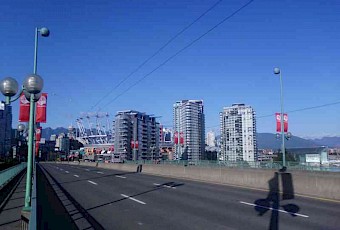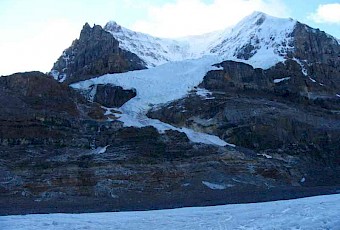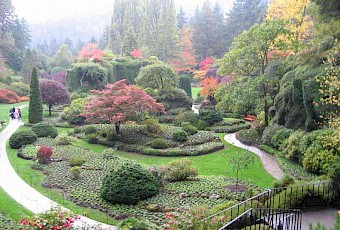Geography at Felix-Klein-Gymnasium
IB Geography follows a general approach, not a regional one. Participation does not require specific prior knowledge but willingness to learn. The attraction of geography is due to its character as a blend of social and physical sciences and the wide range of issues covered. This means however that quite a lot of knowledge has to be present for the exams. To limit the scope of topics a core theme was defined and two optional themes must be chosen.
Objectives
The overall aim of geography is to find patterns and systems behind the seemingly infinite variety that we find on earth to make our world more understandable and manageable. Thus working with models and theories is necessary to reduce complex reality to a level that does not simplify too much but allows us to see the essential behind the individual traits. Still, the individual characteristics of regions and groups of people are considered: Numerous case studies supplement the more general analysis of interactions between people and their physical environments.
Another element adding to the attraction of Geography is the question of CHANGE, over time and in spatial contexts. So Geography is not only about the question WHERE (distribution, location, clustering) but also HOW (development, processes), WHEN (historical dimension) and WHY (causes, factors). To round it off, Geography provides you with a wide range of skills and methodologies that will be useful in many fields of learning and knowledge. Geography aims at helping you understand the environment and its changes and realise the necessity for responsible planning and sustainable management, from the personal and local to a global scale.
Topics
The C O R E theme is "Patterns and Change" and falls into four distinctive but interrelated divisions:
Populations in transition (demography, population geography: change, structure, migration). Disparities in wealth and development (North-South, "3rd World", Reducing inequalities). Patterns in environmental quality and sustainability (Climate Change, Water Scarcity, Soils at Risk, Biodiversity in Danger, Sustainability). Patterns in resource consumption (Ecological Footprint, Food, Energy, Conservation).
The O P T I O N S are:
Option C: Extreme Environments
This comprises hot arid environments (deserts) and cold and high-altitude environments (polar and mountain regions). Questions to be pursued are: physical features and their explanation and distribution, land use (agriculture, mining, tourism) and the need for sustainable management strategies.
Option G: Urban Environments
More than half of the world's population live in cities, not always comfortably and peacefully, not always voluntarily, not always happily. Again, this option is about change, how it is brought about, how it should be analysed and appreciated, and how it should best be managed to minimize negative impacts. Apart from changes in urban population, urban land use and questions of sustainability will be analysed.
One element of assessment will be based on this option. Field work will be conducted in our local urban environment.
Assessment
Since all parts of the examination will be in a written form, this must be practised regularly in class and in the form of homework. Active (oral) participation in class is essential to learn necessary skills and to get a feeling for one's own achievement. There will be two mock exams per semester. Homework will have to be submitted. The Fieldwork Report will have to be planned, drafted and written. On the basis of these elements there will be a predicted grade awarded by the teacher. Most of the assessment will be carried out by external examiners, though. The following table provides an overview of Assessment in Geography SL:
| Assessment components (Standard Level) | Weighting |
| External assessment (2 hours 50 minutes) | 75% |
| Paper 1 (90 minutes): Syllabus content: Core theme | 40% |
Section A: Students answer all short answer questions. | |
| Paper 2 (80 minutes): Syllabus content: Two optional themes | 35% |
Students answer two structured questions based on stimulus material, each selected from a different optional theme. For each theme there is a choice of two questions. Some stimulus material is included in the resources booklet. | |
| Internal assessment (20 hours) | 25% |
| This component is internally assessed by the teacher and externally moderated by the IB at the end of the course.
Written report based on fieldwork. Maximum 2,500 words |
All in all, Geography requires constant and planned commitment because a lot of requirements have to be fulfilled at the end. These can be learned, however, and learning them is very rewarding, since they are helpful in many fields outside the scope of Geography. Learning about the earth is essential as such. We only have this one.
Save the Earth. It's the only planet with chocolate.
Subject Brief: Geography SL/HL











